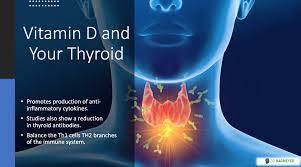Vitamin D has long been recognised for its significant role in managing calcium levels, promoting bone health, and boosting disease resistance. However, emerging research now suggests that vitamin D levels may also play a crucial role in various other health issues beyond their traditional scope.
The Unique Production of Vitamin D
Unlike other vitamins, obtaining adequate vitamin D solely from food sources is nearly impossible. Instead, our bodies have the remarkable ability to produce it naturally in the skin when exposed to either natural or artificial UVB light.
Once the body synthesises vitamin D or receives it as a supplement, it travels to the liver, where it undergoes a transformation into 25(OH)D before being dispatched to various parts of the body and activated. In its activated form, vitamin D stands ready to carry out its essential functions.
Exploring the Link Between Vitamin D and Autoimmune Conditions
Autoimmunity arises when the immune system mistakenly perceives the body's healthy tissues and cells as threats and launches an attack against them. This immune response can lead to damaging inflammation and chronic pain in various parts of the body.
Interestingly, deficiencies in vitamin D may compromise the body's ability to fend off infections, making it a potential contributing factor to autoimmune diseases such as Hashimoto's Thyroiditis and Grave's Disease.
Insights from Clinical Studies
Several studies presented at the annual meeting of the Thyroid Association in 2014 shed light on this intriguing relationship. Chinese researchers examined 34 patients with Hashimoto's Thyroiditis and 32 with Grave's Disease, comparing them to 52 healthy individuals. The study analysed various thyroid-related factors, including vitamin D3.
Vitamin D exists in different forms, including D1, D2, and D3. Vitamin D3, the naturally occurring variant, is the most biologically active.
The results showed that patients with autoimmune thyroid disease had significantly lower levels of vitamin D3 compared to healthy controls.
Moreover, those with high levels of thyroid peroxidase antibodies, which are produced in thyroid autoimmune disease, also exhibited lower vitamin D levels. These findings imply that vitamin D insufficiency could potentially link to or trigger autoimmune thyroid conditions.
In another study, Brazilian researchers examined 54 patients with Hashimoto's Thyroiditis and compared them to 54 healthy individuals. They discovered that 63.2% of the patients exhibited a vitamin D deficiency. Furthermore, those with low vitamin D levels also had higher thyroid-stimulating hormone levels and enlarged thyroids.
The Challenge of Vitamin D Deficiency
In the past, the skin would naturally produce adequate vitamin D when exposed to sufficient UV light. However, due to increased awareness of skin cancer risks, people now frequently use sunscreen and limit sun exposure. Additionally, modern lifestyles often involve spending more time indoors for work and leisure activities, further reducing natural vitamin D production.
As more clinical evidence points to the connection between vitamin D and thyroid function, many physicians now recommend vitamin D testing as part of thyroid evaluation and care. However, the approach to treatment may differ depending on the practitioner's model of care.
Differing Perspectives: Medical Model vs. Functional Model
The medical model typically suggests a daily vitamin D intake of 400 International Units and defines a sufficient serum 25(OH)D level as over 50 nmol/L, which purportedly covers the needs of 97.5% of the population.
The 25-hydroxyvitamin D blood test is used to measure vitamin D levels.
In the medical model, supplementation is often recommended to address low vitamin D levels. However, the functional model of care acknowledges that multiple underlying factors can cause vitamin D deficiency. Thus, simply recommending supplements without addressing overall health and potential issues may prove ineffective and counterproductive.
For instance, certain individuals with autoimmune conditions may have genetic variations that hinder the activation of the vitamin D receptor, necessitating higher blood levels of vitamin D to avoid insufficiency.
Additionally, as vitamin D is fat-soluble, patients with thyroid issues like Hashimoto's Thyroiditis may have low stomach acid and poor fat absorption, further complicating the issue. Moreover, autoimmune conditions can lead to increased vitamin D depletion due to the immune system's overactivity. In light of this, addressing gut and digestive health and modulating the immune system become paramount before considering vitamin D supplementation.
The Role of a Qualified Functional Practitioner
A well-qualified functional practitioner will thoroughly assess gut and digestive health before considering a 25-hydroxyvitamin D blood test to determine vitamin D levels.
Depending on the results, the practitioner may recommend supplementation to achieve optimal levels between 60 and 80 nmol/L, still well below the threshold of 125 nmol/L where adverse effects may occur. After a few months, a retest will determine whether the serum levels have reached an acceptable range, and vitamin D intake will be adjusted to maintain levels between 50 and 60 nmol/L.
In Conclusion
Vitamin D insufficiency is just one of the contributing factors to thyroid problems, making self-supplementation an ill-advised approach without a comprehensive understanding of the underlying issues. It is crucial to consult with a qualified functional practitioner to develop an effective and personalised treatment protocol for thyroid-related concerns.
Dr. Mark A. Scott, D.C., C.N.S., C.F.M.P.



No comments yet
Be the first to share your thoughts!